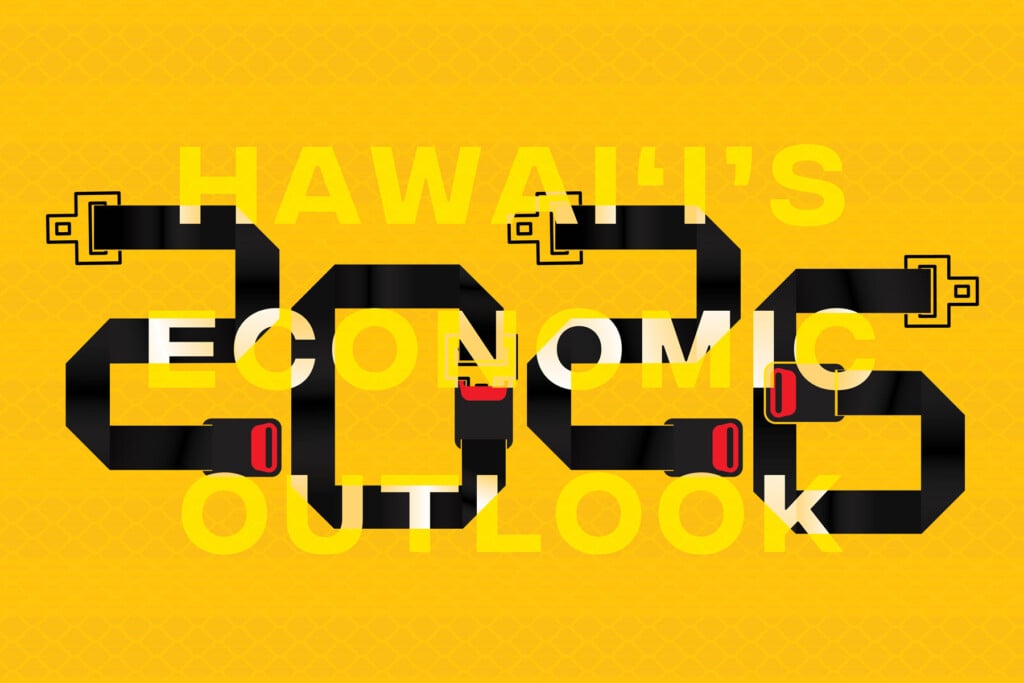Building Bridges to China

 REAL ESTATE
REAL ESTATE
Big Dreams and a Smaller Reality
One type of investment that is commonly assumed to already be attracting Chinese money to Hawaii is real estate. Indeed, many in the real estate sector are busily trying to capitalize on the expected glut of money from Chinese buyers. On the residential side, most major brokerages have Chinese-language websites and have hired Chinese-speaking agents. That strategy dovetails with stories in the national media about heavy Chinese investment in depressed housing markets like Orange County, Calif., or Henderson County, Nev. In fact, according to reports from theNational Association of Realtors, China is the second-largest source of foreign buyers in the U.S., accounting for a quarter of all international sales.
But the idea that there’s a rush of Chinese buying homes in Hawaii is overblown. “It really is,” says Mike Pietsch, CEO of Title Guaranty. “For all the publicity it’s gotten, it’s fairly low. The Japanese and Canadian markets are still much larger.”
Pietsch points to the number of transactions recorded at the Bureau of Conveyances over the last several years. Among foreign buyers in 2012, Chinese were a distant third. Japanese buyers accounted for 228 transactions worth nearly $175 million. Canadians purchased 349 properties worth a whopping $311 million. By contrast, Chinese and Hong Kong buyers together only racked up 29 purchases worth $19 million – a drop in the real estate ocean.
Pietsch says the numbers also mitigate against the idea that the China market is suddenly growing. “If you’re forecasting out the full year for 2013,” he says, “it’s up to 20 sales for China versus 16 last year. But Hong Kong is down a bit.” In contrast, Japanese and Canadian sales are projected to reach 290 and 366 transactions, respectively. In other words, there’s hardly a groundswell of Chinese buyers for Hawaii real estate.
Pietsch acknowledges that these numbers may not tell the full story. It’s possible, for example, that the rash of towers going up in Kakaako and Waikiki temporarily hides a spike in Chinese investment. That’s because the typical Chinese buyer isn’t looking for a single-family home, but for a modest investment property. “My gut is that a lot of it is time-share and condo sales,” Pietsch says. “Stuff that’s easily managed. So these condo projects in Kakaako could be very appealing to foreign buyers, as we saw with Hokua and Nauru towers. The Ritz-Carlton is sold out; the Symphony is almost sold out. I’m sure some of that makeup is foreign buyers.” These are still pre-sales, though; they don’t show up yet in the Bureau of Conveyances numbers.
It’s also possible that some of those Canadian and mainland buyers are actually naturalized citizens originally from China or Hong Kong, and possibly still living there. These kinds of phantom buyers may cloud the size of Chinese investment in Hawaii. In any case, most real estate agents believe the China market is growing. “Our international clients are still mainly Japanese,” says Graham Ting, a China specialist with the high-end brokerage Sachi Hawaii. “But the rate of growth for the Chinese market is much, much faster. It’s true, investment from China may not be statistically there yet, but some of that money may be coming from Canada or the mainland.”
Education Connected to Real Estate
But, most savvy local real estate agents have figured out the limits of the Chinese market. Mei Pang, a Shanghai-born agent with Prudential Advantage, says, “The number of Chinese people who are going to buy real estate here in Hawaii will always be fewer than in mainland cities, especially those along the East Coast and West Coast.” The reason, she says, is largely because of the schools.
Indeed, almost everyone familiar with the mindset of Chinese investors points out that they often invest in the U.S. to help their children get into high-end American schools. “The schools in their mind are Ivy League schools or places like MIT or Stanford,” Pang says. “And, because they have those schools in their mind for their children, or even their grandchildren, they will always look to the mainland, not Hawaii.”
Pang also notes cultural differences between Japanese and Chinese buyers. “The Japanese have been wealthy for a while,” she says, “so they’ve pretty much toured the whole world, then decided Hawaii is a great place, so they come here year after year. The Chinese mentality is different. The Chinese only started to get wealthy and travel abroad about 20 or 30 years ago. If you asked them to come here every year, they would feel it’s such a small place. They want to go to the mainland. They want to see the world.” In short, Hawaii isn’t the same paradise for Chinese buyers that it is for the Japanese.
Still, brokers can’t ignore a country with as much cash as China. For example, Ting’s brokerage collaborates with a real estate company that has an office in Shanghai. For a fee, the Shanghai company refers potential Chinese buyers to Sachi Hawaii. That’s a concrete investment in the China market.
Chinese-speaking agents like Ting are also strategic investments for the real estate companies. Prudential Advantage has “several Chinese-speaking agents, like myself,” Pang says. She also points to the steady increase in direct flights from Chinese cities to Hawaii as a sign the market will grow. But she still doesn’t think local brokers can afford to put too many resources into China. “Right now, we’re still kind of focused on the local marketplace. On the side, we’re kind of in the planning stages of looking into the China market.”
That same tentativeness applies to the agents themselves. Ting, for example, has limited his personal investment in the China market. “I went to fairs and conventions,” he says, “but there were a lot of exhibitors there. Too many of them. I don’t think it’s effective, and it’s very expensive to set up a booth.” In the end, he concluded it wasn’t worth the investment.
Pang concurs. “I was thinking about going to China to market myself,” she says. “But that would have involved a large capital investment. Last year, I decided not to and to basically anchor my business with the local market.”






